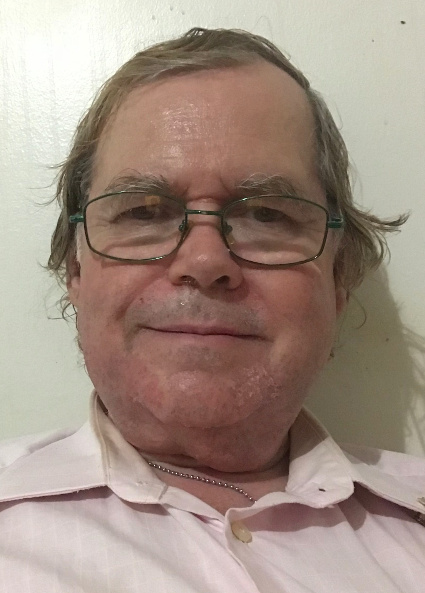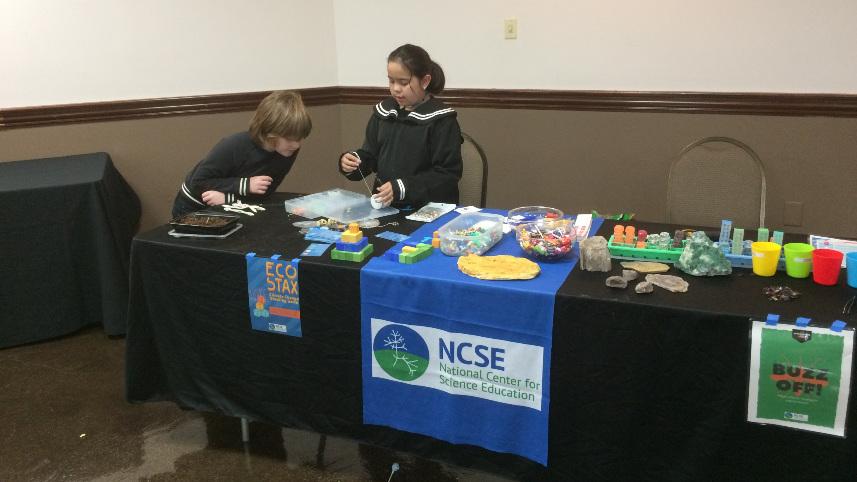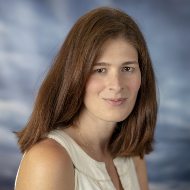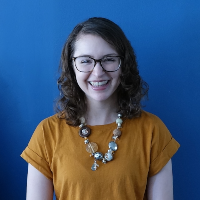When we sat down to talk about science outreach with longtime NCSE member Jeffrey Racey, we weren’t expecting to hear so many young voices on our call. Racey, however, soon assured me that I would not understand the dynamics of his Knoxville-based club, The Future Scientists of Earth, without hearing the voices of its largely young member base. B., a surprisingly eloquent 12-year-old, was after all the club president and had been absolutely instrumental in recruiting other kids to share his love of science. “I believe that if kids get to lead science experiments themselves, it will make things more fun for them,” Racey explained.
 On the day of our call, Racey’s club was doing just that. While Racey chatted with us, the half dozen or so members in attendance were preparing and sorting rocks that they were later going to process on a rock-cutting machine. “Once everything gets ready, we let them take out which stones they want to cut, and look at them and explain them. The geodes, we tell them, form in a gas bubble inside of a volcano, and have crystals inside. We pick out the hollow ones that have the crystals inside, and then discuss the geology. Somebody might have amethyst, another smoky quartz — well, how did the smoky quartz form versus the amethyst?”
On the day of our call, Racey’s club was doing just that. While Racey chatted with us, the half dozen or so members in attendance were preparing and sorting rocks that they were later going to process on a rock-cutting machine. “Once everything gets ready, we let them take out which stones they want to cut, and look at them and explain them. The geodes, we tell them, form in a gas bubble inside of a volcano, and have crystals inside. We pick out the hollow ones that have the crystals inside, and then discuss the geology. Somebody might have amethyst, another smoky quartz — well, how did the smoky quartz form versus the amethyst?”
For Racey, rocks have always been a way to share science with the public. With doctoral degrees in geology and nuclear chemistry and physics and a career working in the jewelry industry, he has seen firsthand the power that gemstones can have engaging the public and eliciting the “how” and “why” questions that are key to scientific discourse. Understanding that even the small garnet you are holding in your hand could take millions of years to form can be instrumental in making evolution accessible to a potentially skeptical audience.
While Racey’s ultimate goal is to share his love of science, he also wants to address disparities within his Tennessee community. “A lot of the existing science clubs weren’t affordable — they would have monthly dues, weekly dues, and kit fees — that a lot of parents wouldn’t be able to afford.” For the past year, Racey has partnered with NCSE and other organizations that provide free activity kits to provide an experience that is free of dues and kit fees, so the members can focus on science.
Throughout the call, Racey talks about his decision to let younger members run the club, from recruiting new members to testing kits to organizing supplies. Still, it’s easy to see how excited he is about sharing science. A few times during our call, there would be a cacophony followed by he excusing himself to explain whatever science phenomenon just occurred. “The kids are really excited about science and we’re trying to bring out the truth about science,” says Racey.
This excitement from all sides has led to rapid growth. Still, the club hasn’t been without its growing pains, particularly when teaching evolution. Racey has never shied away from topics that can help kids understand the science behind evolutionary theory, while also employing the no-conflict strategies that are crucial for effectively engaging a more hesitant audience. “We started with astronomy, asking questions like how did a star begin? Later we talked about how the closest living relative of humans is a chimpanzee, and how we know this through DNA.” Despite introducing topics slowly and giving kids a chance to ask questions, Racey said that the club lost more than a dozen members over the decision to include evolution content. “The kids are open-minded, but the parents aren’t okay with it.” Still, he thinks that his mission to reach kids who don’t have full access to science opportunities means that he has to cover even the difficult subjects. “I want the kids to know that we aren’t here to lie to you. We’re here to show you facts and the truth about the universe we live in.”
The pandemic has only exacerbated the disparities in access to science. Many school-age students in the Knoxville area, as in other places nationwide, lack the technology and resources to allow for effective classroom learning during this time, let alone to access informal educational opportunities. With this in mind, Racey has been attempting to keep the club going during the pandemic, albeit in a safe, socially-distanced manner. The club has had to find new venues and figure out how to modify its activities to take place in the new reality of the pandemic. Outdoor experiences, including working with wind generators and balloon building, are on next month’s list of activities.
NCSE is incredibly excited to be able to continue working with clubs that find creative ways to engage their communities with hands-on evolution and climate change activities, even during a pandemic. We cannot wait to see what the hard-working members of Racey’s club are able to accomplish next.


 On the day of our call, Racey’s club was doing just that. While Racey chatted with us, the half dozen or so members in attendance were preparing and sorting rocks that they were later going to process on a rock-cutting machine. “Once everything gets ready, we let them take out which stones they want to cut, and look at them and explain them. The geodes, we tell them, form in a gas bubble inside of a volcano, and have crystals inside. We pick out the hollow ones that have the crystals inside, and then discuss the geology. Somebody might have amethyst, another smoky quartz — well, how did the smoky quartz form versus the amethyst?”
On the day of our call, Racey’s club was doing just that. While Racey chatted with us, the half dozen or so members in attendance were preparing and sorting rocks that they were later going to process on a rock-cutting machine. “Once everything gets ready, we let them take out which stones they want to cut, and look at them and explain them. The geodes, we tell them, form in a gas bubble inside of a volcano, and have crystals inside. We pick out the hollow ones that have the crystals inside, and then discuss the geology. Somebody might have amethyst, another smoky quartz — well, how did the smoky quartz form versus the amethyst?”
